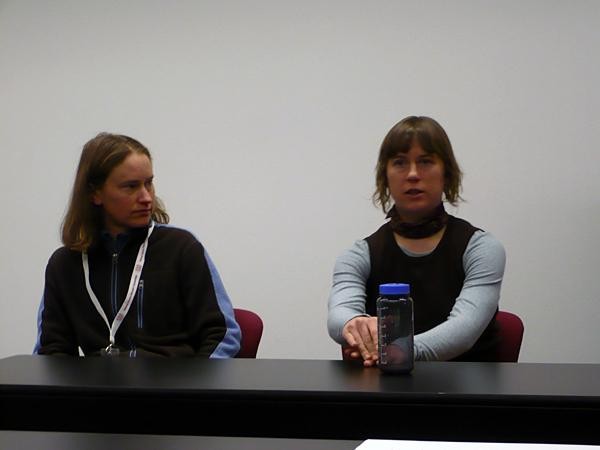First-ever conference empowers women's cycling
By Sue George in Colorado Springs, Colorado The first-ever Women's Cycling Leadership Conference...

By Sue George in Colorado Springs, Colorado
The first-ever Women's Cycling Leadership Conference hosted by USA Cycling at the Olympic Training Center in Colorado Springs, Colorado, wrapped up yesterday evening. The conference aimed to empower and educate experienced and novice female leaders within the community of women's cycling.
32 attendees, including current and past racers, coaches, mentors and those involved in managing and promoting women's cycling from all over the United States convened to share ideas on women's cycling from the grass roots through the elite levels.
"We did it in part because of the research I've been doing," said Kristen Dieffenbach assistant professor of athlete coaching education at the West Virginia University. She co-hosted the conference with USA Cycling Coaching Education Manager Sam Callan.
"There's a discrepancy between the number of women participating and the number of women in leadership positions. It's not that the men aren't doing a good job. It's just our sport and we should be at the front of it."
The issue of leadership by women for women is not limited to cycling. Dieffenbach pointed to a study of the [US] National Collegiate Athletic Association (NCAA), in which 90 percent of the coaches of its women's sports were women in 1970. By 2006, only 43% of the coaches of women's sports were women. Plenty of reasons have been cited for the changes, but no one really knows for sure what is causing the trend.
"At the [USA Cycling] summit in 2006, I saw a need," said Dieffenbach about how this conference came about. "We're strong people – we women involved in cycling leadership, but we're isolated. We want to increase the connection. This [conference] was a good fit given how women socialize."
Get The Leadout Newsletter
The latest race content, interviews, features, reviews and expert buying guides, direct to your inbox!
Over the course of two days, presenters covered topics like sports nutrition, eating disorders, the female athlete triad, successes and failures within women-oriented grassroots and elite racing programmes, how to survive coaching, and training considerations for pregnant women and moms.
Retired former World Champion and two-time Olympian Alison Dunlap headed up an elite athlete panel that also included the recently retired Sarah Uhl, a former junior world track sprint champion and multi-time elite national track champion and Lindsey Bishop, an up and coming mountain bike racer who won the expert women's US National Championship last summer. The experienced athletes answered questions from attendees and shared their personal experiences on both ends of the spectrum of being coached and mentored.
After the conference, which Dieffenbach called a success, she said, "We need to do more. There is a lot of energy."
"This work [at the conference] isn't [Olympic] medal-winning based, but we can support USAC by what we do at the grassroots level. We need people to invest in grassroots and we need to empower them to do it and to show them that it matters." Attendees left the conference with new ideas about what to take back to their local communities to promote the growth of women's cycling."
According to Dieffenbach, just 12 percent of the current USAC membership is female, and the national governing body has never had more than 16 percent female participation. Given the motivation and energy of the women attending the conference, the potential for engaging more women in the world of cycling only looks brighter.